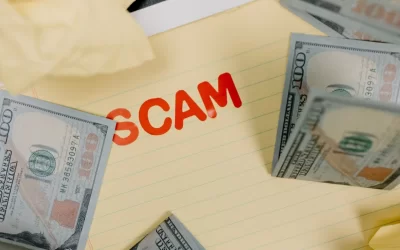Part I of this two-part post focused on the five major steps to successfully approaching a technical writing project without a technical background. Now, in this second installment, we’ll focus on the list of 10 tips and tricks to successfully making that project happen!

Tip #1: Focus on what you DO know. While you might not have a huge amount of knowledge about complex scientific or math formulas, your knowledge base likely DOES include a pretty good grasp on spelling, grammar, and word choice. Start with those strengths as the foundation for the rest of your work—the more you read, the more comfortable you’ll become with the rest!
Tip #2: Use a style guide and/or lists. Check with your human resources team to see if your company uses its own specific style guide. If not, take a look at various established style guides—such as AMA, AP, or Chicago, to name a few—to see which one might be most appropriate for the project at hand. Making a list of recurring items that come up (such as whether “decision-making” should have a hyphen or not, whether the serial comma should be used, and so on) can also be helpful in developing your own, personal, project-specific style guide. Creating your own list of acronyms should also be a time-saver, particularly if the client has guidelines about when to abbreviate terms versus when to spell them out.
Tip #3: Check for compliance. Naturally, the proposal manager is going to be much more knowledgeable in this area than the technical writer. So, make a thorough check to make sure the proposal manager’s instructions are carefully followed and that everything that needed to be addressed was covered.
Tip #4: Think of editing as a conversation between you and the technical expert authors. Asking questions is part of most conversations, and editing should be no exception! Don’t be intimidated by the fact that the technical experts probably have much more science and math knowledge than you have—generally speaking, people enjoy discussing what they do, and they’ll be more than happy to fill you in.
Tip #5: Learn more about any topics you might be regularly writing on. Ask the technical experts to point you in the direction of related reading materials that you could be able to use as a guide going forward—and, again, don’t let intimidation get the best of you when making those requests. Alternatively, you might consider using Google (or a similar search engine) to find old proposals or other documents on similar material, and/or keeping your eyes out for webinars about the topic in question. Do your homework, and you might just find yourself turning into an expert in no time!
Tip #6: Think about the use of pictures, or other graphics/visuals, in technical writing. Technical writing tends to be lengthy, so breaking it up with visual imagery will help catch readers’ interest and keep them engaged. Remember, your role as an editor is to help the author better communicate ideas; pictures and graphics will help tremendously in this endeavor.
Tip #7: Use the “where’s the verb?” method to edit long, dense sections of text. Cross out supporting clauses/phrases, such as prepositional phrases, to get to the “meat and potatoes” of the sentence—the verb should then be fairly obvious, and you’ll be able to easily tell whether it agrees with its subject. Once you’ve made that determination, you can then go back and edit the supplementary parts of the sentence (or look at making a total re-write of that sentence, depending on how messy it is).
Tip #8: Try the “word swap” technique during the editing process. Since you’re not a technical expert, it’s highly likely that you’re going to run into words you’re not familiar with—but that’s okay. What you can do is determine that word’s part of speech and replace it with a common word that is in your vocabulary. Then, read the new sentence with the new word. It probably won’t make sense, but you’ll be able to much more easily see whether it’s grammatically correct and easy for a reader to follow.
Tip #9: Keep yourself physically active while you’re working. If you’re sitting in front of a computer screen for hours on end, you are inevitably going to lose focus, and the quality of your work might suffer. Consider changing things up, such as by periodically switching to a standing desk, or using periodic breaks to take a walk and get fresh air. Re-charging doesn’t have to take long, but it can still make a big difference at the end of the day!
Tip #10: Know your own limitations. Sometimes, a client might ask you to complete a task that is simply not within your ability—and if that happens, don’t be afraid to speak up and say so. You might, for instance, be expected to catch factual errors about technical concepts that you know nothing about; in a situation like that, make it clear to the author that this is not your area of expertise, and you are not the right person for that part of the process. No one should fault you for it!
Mastering these tips isn’t going to be an overnight process—it takes time and practice. But with a little patience, pretty soon, you should find that your lack of technical education is the absolute last thing your prospective clients are thinking about—and maybe you’ll even pick up some technical knowledge while you’re at it!
By: Anne Brenner
Anne is an Assistant Managing Editor at Technica Editorial




